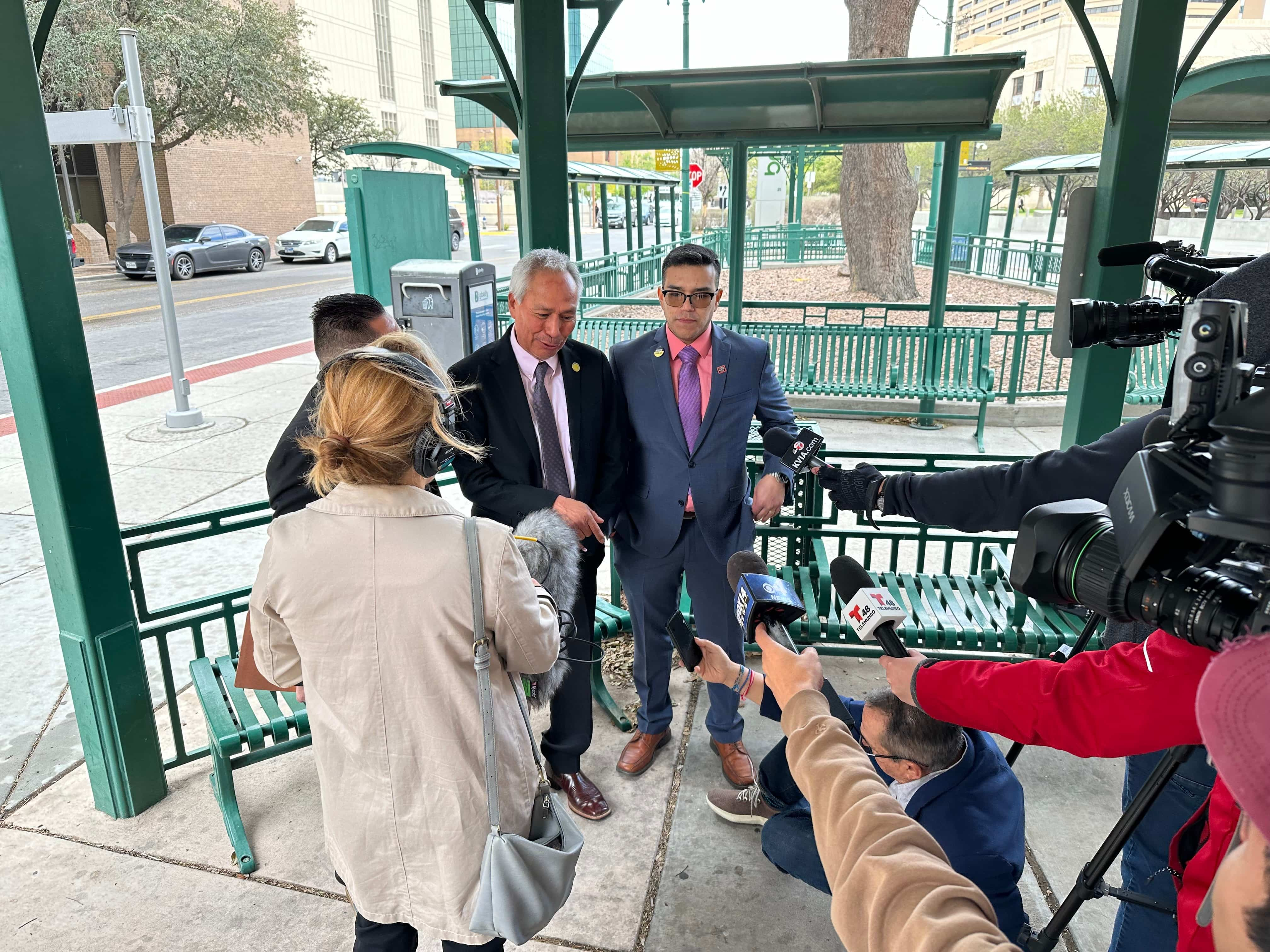US Immigration judge grants asylum to Mexican journalist Emilio Gutiérrez Soto and son

An immigration judge on Monday granted asylum to Mexican journalist Emilio Gutiérrez Soto and his son, ending a 15-year fight that began after the father and son fled Mexico under death threats in 2008.
The judge’s order granting asylum to the two men follows last September’s decision of a three-judge panel of the Board of Immigration Appeals that concluded that two previous rulings against the Gutiérrez Sotos’ asylum claims were “clearly erroneous.” At Monday’s hearing, the government also waived its right to appeal the grant of asylum.
“Our hearts are full to hear the news that Emilio Gutierrez Soto has finally been granted asylum,” Emily Wilkins, president of the National Press Club, and Gil Klein, president of the National Press Club Journalism Institute, said in a statement. “Emilio’s case illustrates the frustrating, unnecessary and numerous hurdles for exiled journalists who come to the U.S. We call on our government to promote Freedom of the Press for those like Emilio who were forced to leave their countries because of their reporting.”
Gutiérrez Soto and his son, Oscar, legally entered the United States in 2008 after Emilio’s investigative reporting on military corruption in Mexico led to death threats against him. For nearly a decade, the father and son lived and worked in Texas and New Mexico as they awaited a ruling on their asylum claims.
In 2017, months after the National Press Club honored Gutiérrez Soto with the John Aubuchon Press Freedom Award, an immigration judge rejected their asylum claims and ordered the father and son deported. That decision was reversed on appeal, then reinstated, before finally being overturned again last September.
Monday’s welcome conclusion to the asylum case followed years of extensive advocacy efforts by the National Press Club and other press freedom advocates, including the Reporters Committee for Freedom of the Press.
“The grants of asylum for Emilio and his son are long overdue,” Katie Townsend, the Reporters Committee’s deputy executive director and legal director, said after Monday’s hearing. “For years, individuals and organizations across the journalism community have come together to support Emilio and make clear that reporters in Mexico and around the world must be able to do their work without fear of violence or retribution. We are proud to have supported those efforts, including through a Freedom of Information Act lawsuit on behalf of the National Press Club Journalism Institute and Kathy Kiely, which sought to shed light on the circumstances surrounding the Gutiérrez Sotos’ treatment by the U.S. government.”
Attorneys from the Reporters Committee and Ballard Spahr have been litigating the FOIA lawsuit since 2018. The case concerns records that U.S. Immigration and Customs Enforcement refused to turn over in response to requests from Kiely, a Missouri School of Journalism professor and former fellow for NPCJI, including emails, memos, and other communications that mentioned the Gutiérrez Sotos, as well as information about how the agency restricts calls to or from detainees in its facilities in El Paso, Texas.
As we reported in January, the FOIA lawsuit against the Department of Homeland Security and ICE recently resulted in a decision by the U.S. District Court for the District of Columbia concluding that the government had failed to adequately search for the records and that it did not sufficiently support its extensive withholdings and redactions under various FOIA exemptions. In addition to requiring ICE to immediately turn over one record that it had improperly withheld, the court ordered the agency to go a lot further in explaining why many other records should not be made public.
The court’s ruling ultimately led to an unusual agreement in a FOIA case — one that may have played a key role in helping successfully resolve the asylum case.
After weeks of negotiations following the decision, the two parties informed the court in January that they had reached an agreement: NPCJI and Kiely would agree to drop their challenges to the government’s redactions and withholdings in the FOIA case if the government “will not oppose asylum” for the Gutiérrez Sotos.
Several weeks later, attorneys for the government and the Gutiérrez Sotos filed a joint motion in the immigration proceeding that stated the government would not oppose asylum. The motion specifically cites the agreement in the FOIA case.
The Reporters Committee regularly files friend-of-the-court briefs and its attorneys represent journalists and news organizations pro bono in court cases that involve First Amendment freedoms, the newsgathering rights of journalists and access to public information. Stay up-to-date on our work by signing up for our monthly newsletter and following us on Twitter or Instagram.